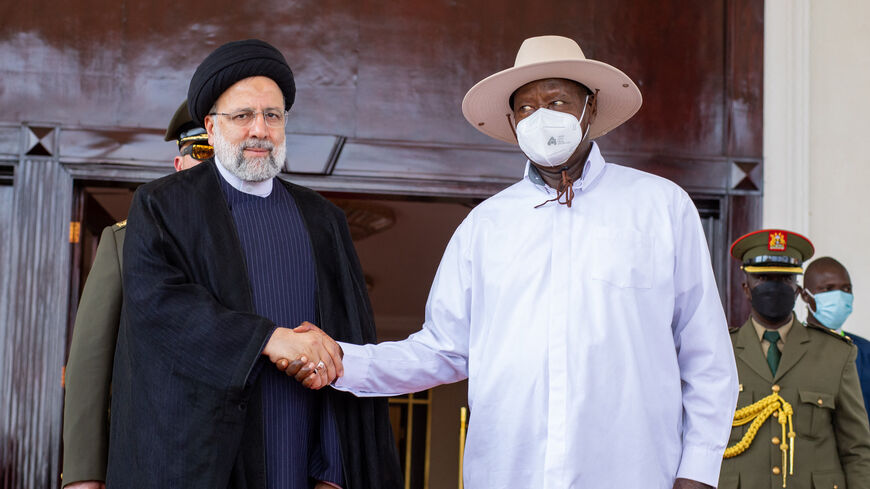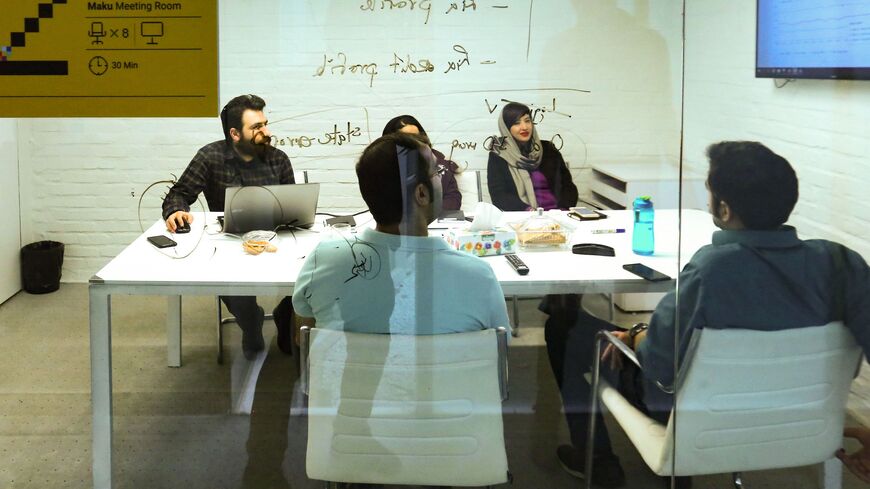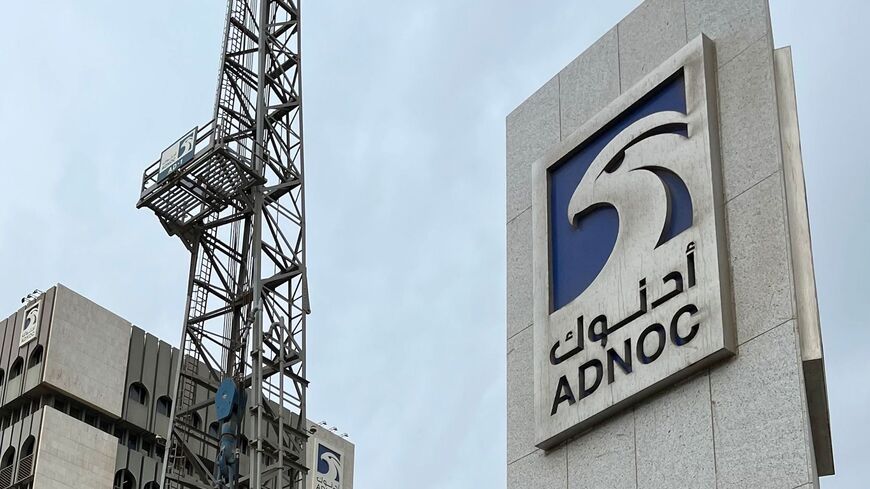The strength of Iran’s startup ecosystem put to the test amid protests
Al-Monitor Pro Members
Dr. Bijan Khajehpour
Managing Partner, Eurasian Nexus Partners, Vienna, Austria
Dec. 14, 2022
The domestic wave of social protests, the government’s crackdown and related internet restrictions have negatively impacted the country’s startup scene and will lead to the closure of many innovative entities. Though Iranian startups have remained insulated from negative international trends, only larger and more consolidated entities will manage to survive the current pressures and become sustainable businesses in the longer run. The survival of some startups will depend on the feasibility to enter regional or international markets.
- In the 2010s, the promotion of knowledge-based startups served two important purposes: pushing back against unemployment among Iran’s educated youth and offering some domestic solutions to the country’s sanctions-hit industry.
- During the same period, the startup scene was also empowered through an initiative by the Iranian diaspora called IBridges that put stakeholders and funders among the diaspora in touch with young entrepreneurs inside Iran. However, the authorities limited those contacts between the diaspora and Iranian startups, restricting the space for their internationalization.
- The market benefited from the availability of young, educated entrepreneurs, but also from a concerted effort by authorities to promote innovation through establishing incubators and accelerators, usually affiliated with universities.
- The progress that was recorded in the 2010s has been severely undermined through external sanctions as well as internal developments. In fact, the ongoing protests and internet restrictions by the government have generated a damning impact on the startup ecosystem in the country, including widespread startup closures as well as the migration of young entrepreneurs.
- Uncertainty about the future of social media platforms such as Instagram and the growing limitations as a result of government filtering of the internet are pushing a growing number of startups out of business.
- According to Mostafa Amiri of Zarinpal, one of the main online payment platforms in the country, government responses to the recent protests have led to a 40% decline in online transactions, which will lead to a major negative impact on fintech and other startups in the country.
- In the words of one industry player, the current protest atmosphere has a number of psychological and operational consequences: It is impossible to advertise any initiatives on various media. Furthermore, restrictive official measures have suffocated the potential for revenue generation through online sales, and it is also impossible to find the needed talent through job posts. The feeling among many players is that any activity by startups is frowned upon by the protesters and will be met with harsh social media criticism, translating into negative advertising.
- In addition to the direct and indirect impacts of protests, startups also face other bottlenecks such as the mandatory registration to receive a governmental e-commerce certificate as well caps on online bank transactions — both the mentioned restrictions lead to corrupt practices and are damaging to the startup ecosystem. Experts agree that these and other governance realities are important obstacles to running a hassle-free startup in Iran.
- Consequently, there are a growing number of layoffs and closures. For example, in early December the e-commerce platform Pelazio — an entity with 100 staff members — announced its planned closure.
- Besides the Iran-specific challenges that startups face, there are also trends in the global market that are putting pressure on such entities. These include inflationary pressures, shortages in specialized human resources and general post-COVID-19 supply chain bottlenecks. For now, Iran has been insulated from these international trends due to sanctions, but sanctions and internal realities have put enormous pressure on startups.
Scenario 1: With the help of the Iranian diaspora, selected startups will enter international markets:
Identifying internationalization as a path toward survival, selected Iranian startups will choose that strategy with the help of diaspora members who have proactively interacted with many players in the country’s startup scene. Their support will be crucial for the emergence of various entities on the international scene. It will certainly be frowned upon by the hard-line political forces in Iran, but it could offer a feasible mechanism for some startups to survive the current crunch and operate more globally. Ideal locations for such transitions will be Vienna or Berlin.
Scenario 2: Through active regional investments, Iranian startups will enter the regional markets:
As a number of Iranian startups offer products and services that would have value in regional markets, it is also possible to see the survival of some startups through regional partnerships. The most likely categories that will be able to engage regional markets are those connected to agricultural and health tech sectors with regionally developed solutions. The platform for such partnerships would also be the Iranian diaspora in the region, with the most likely hub being Dubai.
There will be a massive decline in startups. A continuation of the current protests and government restrictions will lead to the closure of more than half of the existing startups. This will also undermine the trust of venture capitalists and other investors in the country’s startup ecosystem, and it will take years before the country can return to an acceptable level of innovation and startup funding. In this scenario, those entities that will survive have a solid domestic market and also strong domestic investors. At the same time, the remaining startups will become more dependent on government funding, which will not be a healthy development for the startup scene as such funding would create operational and in some cases sanctions-related limitations for startups.
The conflation of internal and external challenges is not new to the Iranian startup scene, but before the recent wave of protests, it was still feasible to use the country’s ecosystem to start and sustain a startup relying on various support systems. However, in the current climate dominated by social protests and the government crackdown, it is nearly impossible to come up with entrepreneurial innovations and sustain a related startup. Consequently, there will be a higher push for migration of young entrepreneurs and a further decline of the once vibrant startup ecosystem in the country.
Consequently, over the short to medium term, Iran will witness the closure of many of its startups, pushing up youth unemployment and regression with regard to innovation.
Bijan Khajehpour is the managing partner at Eurasian Nexus Partners - eunepa.com - a Vienna-based international consulting firm. He also sits on the board of the Europe Middle East Research Group. He is considered an expert on geopolitics of energy and the Iranian economy and energy sector.
We're glad you're interested in this memo.
Memos are one of several features available only to PRO Expert members. Become a member to read the full memos and get access to all exclusive PRO content.

Already a Member? Sign in
The Middle East's Best Newsletters
Join over 50,000 readers who access our journalists dedicated newsletters, covering the top political, security, business and tech issues across the region each week.
Delivered straight to your inbox.
Free
What's included:
Free newsletters available:
- The Takeaway & Week in Review
- Middle East Minute (AM)
- Daily Briefing (PM)
- Business & Tech Briefing
- Security Briefing
- Gulf Briefing
- Israel Briefing
- Palestine Briefing
- Turkey Briefing
- Iraq Briefing
Premium Membership
Join the Middle East's most notable experts for premium memos, trend reports, live video Q&A, and intimate in-person events, each detailing exclusive insights on business and geopolitical trends shaping the region.
$25.00 / month
billed annually
$31.00 / month
billed monthly
What's included:
Memos - premium analytical writing: actionable insights on markets and geopolitics.
Live Video Q&A - Hear from our top journalists and regional experts.
Special Events - Intimate in-person events with business & political VIPs.
Trend Reports - Deep dive analysis on market updates.
We also offer team plans. Please send an email to pro.support@al-monitor.com and we'll onboard your team.
Already a Member? Sign in






